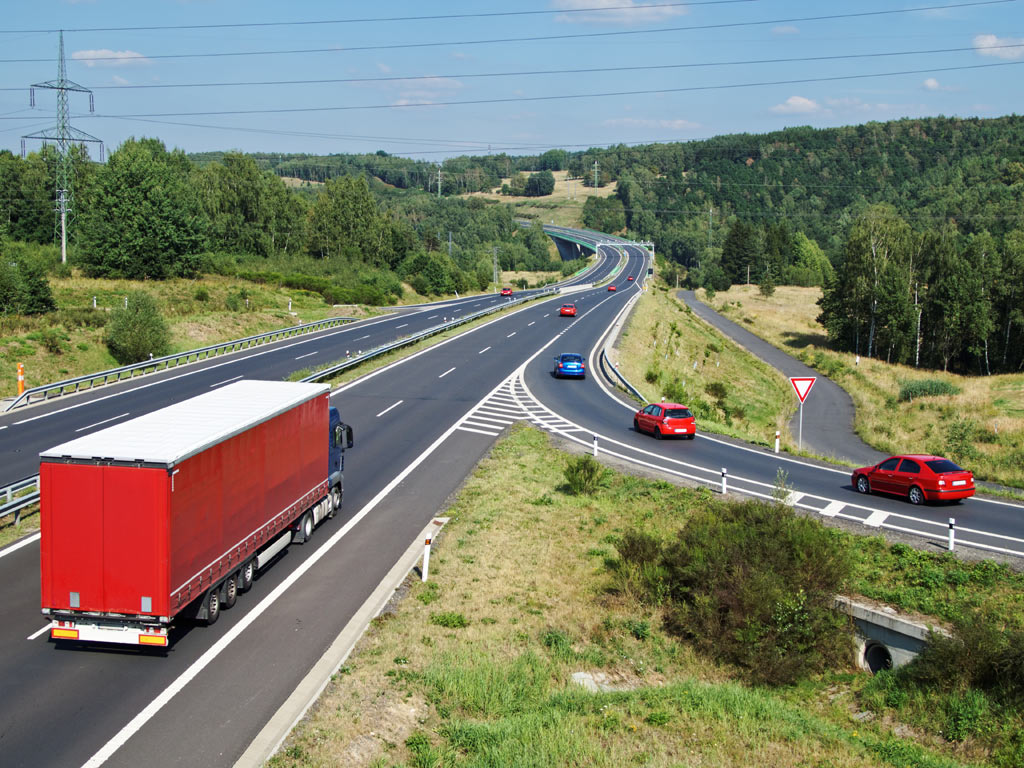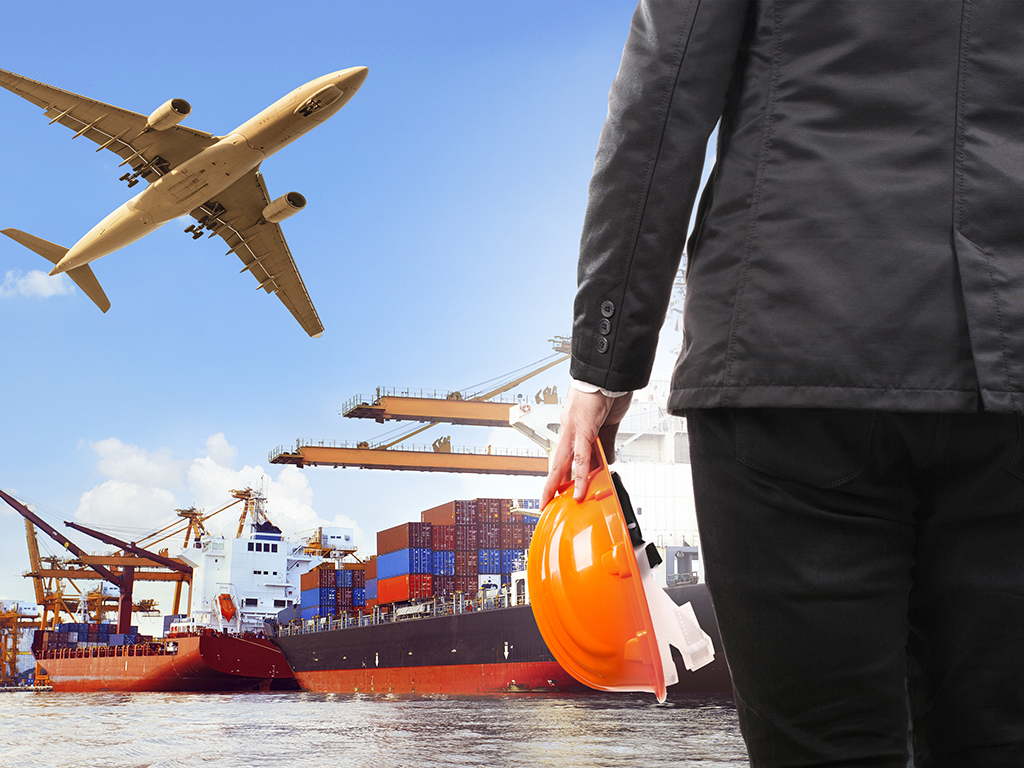Good infrastructure as main requirement for development of economy – Faster, Farther and More Efficient by Land, Water and Air
Source: eKapija
 Wednesday, 27.11.2019.
Wednesday, 27.11.2019.
 16:35
16:35
 Wednesday, 27.11.2019.
Wednesday, 27.11.2019.
 16:35
16:35
(Photo: Milos Muller/shutterstock.com)

The Ministry of Construction, Transport and Infrastructure says for our portal that, in the past four years, numerous project have been launched and realized in Serbia.
– More than 320 kilometers of highways has been built and the construction of the entire road Corridor 10 to the border with Bulgaria and North Macedonia has been completed and the road has opened for traffic. The Zezelj Bridge in Novi Sad and the 103 kilometers of the Milos Veliki highway have also opened for traffic. Over 500 km of railways has been reconstructed, and the construction of the first high-speed railway in the region, Belgrade-Budapest, has begun as well – the ministry says.
In the past period, among other things, the new toll booth in Vrcin was built, the first phase of the construction of the Belgrade Center railway station in Prokop was completed, the border crossing Batrovci was expanded, the new Ljubovija-Bratunac bridge was built and the first fast chargers for electric cars were installed on Corridor 10. As they say, the first phase of the construction of the Belgrade Center station in Prokop was completed, and there are also investments in the reconstruction of regional railways.
Planned investments
– A new investment cycle has been initiated, with projects in road, water and air transport,worth more than EUR 10 billion. These projects will make Serbia well connected with the region, the European Union and the world. As for road transport, the construction of the first section of the Belgrade-Sarajevo highway has begun, the one from Sremska Raca to the Preljina-Pozega section of the Milos Veliki highway – the ministry says.
The construction of the highway and the high-speed route Ruma-Sabac-Loznica, on which a commercial contract was signed with Azvirt, and the construction of the Pojate-Preljina highway on the Morava Corridor are planned to start by the end of the current year. Plans for next year include works on the highway between Nis and Merdare, the continuation of the works on the construction of the bypass route around Belgrade, as well as the section between Ostruznica and Bubanj Potok. The preparation of the project documentation for the Sumadija corridor, that is the Vozd Karadjordje highway, is also in planning.
– Equally important is the modernization of the railway, as shown by more then 500 kilometers of reconstructed railways. Serbia is now a part of the global Chinese initiative “One Belt, One Road”, a high-speed railway from Belgrade to Budapest is being built, we are reconstructing the Bar railway with Russian Railways, and there are also preparations for the continuation of the modernization of the railway Corridor 10 – the competent ministry says.
The importance of infrastructure projects was also pointed out by Milorad Kilibarda, a professor at the Faculty of Transport and Traffic Engineering.
– There's no development of logistics, economy or society without infrastructure. The traffic and transport infrastructure connects our market and economy with the European and global transport and logistics networks. Forwarding, transport and logistics companies carry out their activities, the flow of goods and supply chains through logistics and business networks. Investments in infrastructure create conditions for our companies to position themselves better in the market and offer economical and efficient logistics solutions – professor Kilibarda told eKapija.
(Photo: stockphoto mania/shutterstock.com)

In addition to investments in road transport, the ministry emphasizes the importance of investments in water transport.
– The total value of the projects is around EUR 340 million and they include, among other things, the reconstruction of navigation locks at the HPP Djerdap 1 and the HPP Djerdap 2, as well as the construction of a new navigation lock as part of the dam on the Tisa near Novi Becej. The regulation of the Sava and the Danube waterways, the construction and the expansion of ports in Novi Sad, Smederevo, Belgrade, Sremska Mitrovica, Prahovo and Bogojevo and the implementation of the most modern electronic systems for navigation safety management are planned as well.
Professor Kilibarda says that Serbia has great potential when it comes to river transport, but warns that the potential is largely underused.
– We need ports on the Danube and also on the Sava, as those are the prerequisites for using river transport. At the moment, we don't have a single modern port and that is one of the reasons why this form of transport is underused, although there are plenty of goods whose transport by river would be economically justified – says professor Kilibarda.
When asked whether the announced investments and privatization of ports will contribute to the development and improvement of this field, the professor says that it remains to be seen.
– Models of public-private partnerships which give good results in such systems are known. However, there are examples of privatizations here which have not only failed to improve the operations, but caused them to either stop entirely or get reduced to a minimum.
In addition to river transport, professor Kilibarda says that Serbia has considerable potential in developing air cargo transport.
– Air cargo transport has considerable potential, which will also grow in the future. The delivery of smaller shipments within short deadlines, online trade in a global market and the transport of components and final products of greater value are the demands the realization of which will be benefited by air cargo transport – our interviewee points out.
When it comes to air transport projects, the ministry reminds that the Belgrade Nikola Tesla Airport has signed a concession agreement worth EUR 1.46 billion with the French company Vinci, of which the value of the investments is EUR 732 million. They also emphasize the importance of the development of the Nis Airport and the opening of the third international airport, Morava near Kraljevo.
All these projects, they believe, will have a considerable impact on the sector of transport and logistics.
– With the realization of these projects, the transit traffic is returning to Serbia, which will reflect positively on these sectors. The number of vehicles on our highways has gone from 37 million in 2014 to around 60 million expected by the end of 2019, and we expect the trend of growth to continue in the upcoming years – the ministry says.
Companies:
 Azvirt Beograd
Azvirt Beograd
 Azvirt Limited Liability Company
Azvirt Limited Liability Company
 A.D. Aerodrom Nikola Tesla Beograd
A.D. Aerodrom Nikola Tesla Beograd
 Aerodrom Morava Kraljevo
Aerodrom Morava Kraljevo
 Aerodrom Konstantin Veliki Niš
Aerodrom Konstantin Veliki Niš
 Ministarstvo građevinarstva, saobraćaja i infrastrukture Republike Srbije
Ministarstvo građevinarstva, saobraćaja i infrastrukture Republike Srbije
 Saobraćajni fakultet Beograd
Saobraćajni fakultet Beograd
 VINCI CONCESSIONS - VINCI Construction
VINCI CONCESSIONS - VINCI Construction
 VINCI Airports France
VINCI Airports France
Tags:
Vinci
Milorad Kilibarda
investments in transport
Corridor 10
The Zezelj Bridge in Novi Sad
Milos Veliki highway
high speed railway Belgrade Budapest
border crossing Batrovci
Belgrade Center station
Prokop
highway Belgrade Sarajevo
Preljina Požega section
high speed route Ruma Sabac Loznica
Pojate Preljina highway
Morava Corridor
Niš Merdare highway
bypass route around Belgrade
Ostruznica Bubanj potok section
initiative One Belt One Road
water traffic
river traffic
avio cargo traffic
Dunav
Tisa
Port of Novi Sad
Port of Beograd
Port of Smederevo
Port of Prahovo
Port of Sremska Mitrovica
Port of Bogojevo
Vozd Karadjordje highway
Special edition newsletter
Special edition newsletter eKapija
Special edition newsletter Transport and Logistics Faster Farther and More Efficient by Land Water and Air
transport and logistic
logistic
Comments
Your comment
Most Important News
Full information is available only to commercial users-subscribers and it is necessary to log in.
Follow the news, tenders, grants, legal regulations and reports on our portal.
Registracija na eKapiji vam omogućava pristup potpunim informacijama i dnevnom biltenu
Naš dnevni ekonomski bilten će stizati na vašu mejl adresu krajem svakog radnog dana. Bilteni su personalizovani prema interesovanjima svakog korisnika zasebno,
uz konsultacije sa našim ekspertima.


 Izdanje Srbija
Izdanje Srbija Serbische Ausgabe
Serbische Ausgabe Izdanje BiH
Izdanje BiH Izdanje Crna Gora
Izdanje Crna Gora


 News
News






